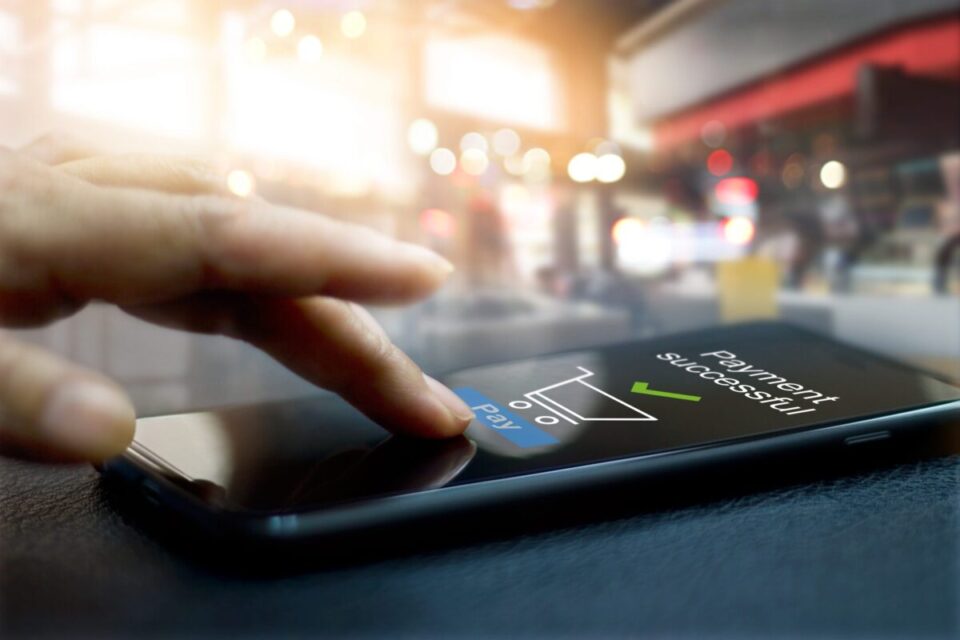As the UK begins to emerge from lockdown, quick service restaurants (QSRs) and other restaurant outlets will be able to reopen to full capacity after many months of closed doors or reduced operations. However, once they are allowed to reopen, how will adopting an omnichannel approach allow them to do so safely and hygienically?
As we enter the early days of the new normal, David Payet, Grocery Retail & QSR Offer Manager, GSV at the payment and transactional services company Worldline, discusses how the pandemic has impacted QSRs, and how increased digital adoption continues to shape their future.

The past year has seen the quick service restaurant (QSR) industry faced with some unprecedented changes and challenges. Social distancing, contact tracing and the sudden need to shift all or most sales online have all meant that businesses in the sector have had to adopt new strategies in order to survive.
As such, we have seen the entire purchase journey change for consumers, from the point of sale (PoS) to collection. Contactless has become a central feature of the QSR industry – even when it comes to deliveries. Digital systems like click and collect have been brought to the fore and greater investment is being placed into innovative technologies like facial recognition and tabletop ordering.
QSRs have felt the heat too
But the truth is, QSR restaurants were already at the forefront of digitalisation in the foodservice industry, even before the pandemic. This may attest to why they have weathered the storm better than other players in the sector.
This doesn’t mean they have been unscathed by Covid-19 though. Currently, there has been no way to make up entirely for the loss of eat-in sales. The best performing QSR in the industry, McDonald’s, experienced a 30% worldwide drop in income and a 68% drop in net profit in the second quarter of 2020.
So, with this in mind, and as we head into the new normal, what payment technologies will help businesses recover from such losses?
Delivery apps may take a toll
By one estimate, the QSR industry has adopted more digital technology in the past year than what it was expected to in the next five to ten years. Almost every QSR outlet in the country will now have some sort of digital technology, from extensive ordering kiosks and bespoke apps in large franchises to Just Eat and Deliveroo ordering in smaller restaurants.
This dependency on third-party delivery apps for taking orders, processing payments and arranging deliveries could be potentially harmful in the long run though. While using them is currently better than not being able to take orders at all, such apps will cut into profits once restaurants begin to reopen. It also means QSRs can’t take payments directly – everything has to be processed by an intermediary, which could cause issues and add an extra layer of complexity to a company’s payment infrastructure.
This complexity, and the overall challenge of digital transformation, means that some brands may struggle to integrate all aspects of their business with new digital systems. There are still gaps in contactless wallet acceptance, for example, and difficulties in integrating loyalty programs. Starbucks, for example, has a digital version of its loyalty card but doesn’t allow customers who order on Uber Eats or Just Eat to collect rewards.
What’s more, using such apps means that QSRs lose control over their checkout experiences resulting in inconsistencies during the purchase process. In the new normal, when digital innovations are being utilised in restaurants and online, it will be important for businesses to maintain a coherent checkout experience, regardless of whether the purchase is taking place online or not.
Incorporating new solutions in the new normal
When restaurants are allowed to reopen to full capacity, it’s unlikely they’ll be returning to their pre-pandemic business as usual. There are a number of innovations that will help them adapt to changes imposed by the pandemic when it comes to consumer behaviour and new ways of paying.
Using technology that expands upon their current digital capabilities will be a great place to start for QSRs. For example, payments with Apple Pay and Google Pay that enable one-click mobile loyalty subscriptions bypass the need for plastic cards or for merchants to have individual apps by deploying the loyalty card directly to a customer’s digital wallet.
Scan and pay is another interesting technology. Developed originally for the retail industry, the payment model already caters to social distancing measures. In self-service restaurants, it could allow customers to bypass the need to interact with staff entirely by using a QR code to log in to the store itself. Following this, they can scan the barcodes of each item before paying. The technology could even allow QSRs and coffee houses to bring restaurant-style eat-in experiences to customers, who could scan their tables, make orders through an app and wait for food to arrive at the table.
Getting the omnichannel balance right
These solutions alone won’t be truly effective without an integrated, omnichannel experience that connects the dots between online and in-restaurant purchases. Customers are now used to ordering online and the payment experience must be frictionless regardless of where it is taking place. Key technologies and solutions, like tokenisation and reward cards for customers’ online and offline accounts, will help QSRs build a solid foundation where they can progress with their digitalisation and adapt effectively to changes in the new normal.




